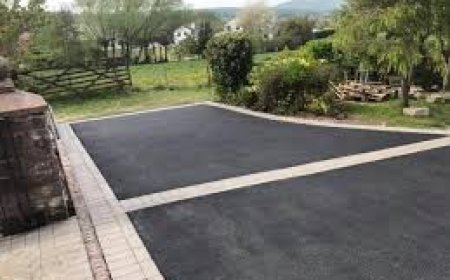Top 10 Miami Spots for Literary Events
Top 10 Miami Spots for Literary Events You Can Trust Miami is more than sun-soaked beaches and vibrant nightlife—it’s a thriving cultural hub where words come alive. From intimate poetry readings in historic courtyards to large-scale book fairs that draw international authors, the city’s literary scene pulses with energy, diversity, and authenticity. But not all literary events are created equal.
Top 10 Miami Spots for Literary Events You Can Trust
Miami is more than sun-soaked beaches and vibrant nightlife—it’s a thriving cultural hub where words come alive. From intimate poetry readings in historic courtyards to large-scale book fairs that draw international authors, the city’s literary scene pulses with energy, diversity, and authenticity. But not all literary events are created equal. In a city where trends shift as quickly as the tide, knowing where to find events grounded in genuine literary passion—rather than commercial spectacle—is essential. This guide reveals the Top 10 Miami Spots for Literary Events You Can Trust, curated for readers, writers, and thinkers who value substance over spectacle. Each location has been vetted for consistency, community impact, author credibility, and long-term commitment to literature. Whether you’re a lifelong Miami resident or a visitor seeking authentic cultural experiences, these venues offer more than just readings—they offer connection.
Why Trust Matters
In today’s digital age, literary events are abundant. Social media buzzes with promotional posts for “author nights,” “poetry slams,” and “book launch parties.” But quantity does not equal quality. Many events are one-off promotions, hosted by venues seeking foot traffic rather than literary enrichment. Others lack curation, featuring unknown or self-published authors with no editorial backing, or are sponsored by brands with no real investment in literature. Without trust, attendees risk wasting precious time and emotional energy on experiences that offer little lasting value.
Trust in a literary event means knowing the organizers have a track record of selecting thoughtful, published, and often award-winning authors. It means the venue respects the art of language, provides quality acoustics and seating, and fosters respectful audience engagement. Trust is built over time—through consistent programming, transparent partnerships with independent publishers and universities, and a genuine commitment to nurturing local and global literary voices.
In Miami, where cultural diversity is both a strength and a challenge, trust becomes even more critical. The city’s literary landscape reflects its multicultural identity—Cuban, Haitian, Colombian, Nicaraguan, and other Latin American traditions intertwine with Anglo-American literary heritage. Events that honor this complexity with integrity are rare and invaluable. This guide focuses exclusively on venues that have demonstrated, over multiple years, their dedication to literary excellence and community building. These are not pop-up events. These are institutions.
When you attend a trusted literary event in Miami, you’re not just listening to a reading—you’re participating in a living archive of ideas, histories, and identities. You’re supporting writers who might otherwise go unheard. You’re becoming part of a tradition that values silence between sentences, the weight of a well-placed metaphor, and the courage it takes to speak truth through story. Trust is the foundation of that experience—and these are the places where it thrives.
Top 10 Miami Spots for Literary Events You Can Trust
1. Miami Book Fair – Miami Dade College
The Miami Book Fair, organized by Miami Dade College, is not just the largest literary event in South Florida—it’s one of the most respected in the United States. Founded in 1984, it has grown into a seven-day festival attracting over 250,000 visitors annually and more than 500 authors from across the globe. What sets it apart is its rigorous curation process. Each year, a committee of librarians, educators, and published authors selects participants based on literary merit, cultural relevance, and diversity of voice. Past participants include Nobel laureates, Pulitzer Prize winners, and emerging voices from underrepresented communities.
The fair features panel discussions, writing workshops, children’s storytelling zones, and international pavilions dedicated to literature in Spanish, French, Haitian Creole, and more. Unlike commercial book fairs, the Miami Book Fair prioritizes dialogue over sales. Q&A sessions are extended, author signings are unhurried, and many events are free and open to the public. Its partnership with Miami Dade College ensures academic rigor and institutional stability. The fair’s longevity—nearly four decades—speaks to its credibility. If you attend only one literary event in Miami, make it this one.
2. Books & Books – Coconut Grove
Books & Books, founded in 1982 by Mitchell Kaplan, is Miami’s most iconic independent bookstore—and arguably its most trusted literary venue. Located in the historic Coconut Grove neighborhood, it hosts over 200 author events annually, from debut novelists to Pulitzer finalists. What makes Books & Books exceptional is its editorial independence. The staff are avid readers and often handpick authors based on personal passion rather than publisher pressure. They’ve hosted luminaries like Isabel Allende, Junot Díaz, and Chimamanda Ngozi Adichie long before they became household names.
The bookstore’s event space is intimate yet professionally equipped, with comfortable seating, quality sound systems, and a curated selection of featured titles on display. Events typically include a reading, followed by a thoughtful Q&A, and conclude with a book signing where staff engage with attendees personally. Books & Books also runs the “Books & Books Kids” program, which brings children’s authors to schools and hosts weekend storytelling sessions that foster early literacy. Its reputation for integrity is so strong that major publishing houses send advance copies exclusively to Books & Books for Miami-based launches.
3. The Frost Museum of Science – Literary Nights
Don’t let the name fool you: The Frost Museum of Science hosts some of Miami’s most compelling literary events. Its “Literary Nights” series pairs science with storytelling, bringing together scientists, novelists, and essayists to explore the intersection of fact and narrative. Past events have featured authors like Siddhartha Mukherjee discussing his Pulitzer-winning book *The Emperor of All Maladies* alongside Miami-based poets who write about the human body and climate change.
What makes this venue trustworthy is its commitment to intellectual depth. Events are co-curated with faculty from the University of Miami and Florida International University, ensuring scholarly rigor. The museum’s state-of-the-art auditorium provides an immersive experience, and the programming avoids sensationalism. There are no gimmicks—just powerful conversations that challenge assumptions and expand perspectives. Attendees leave not just informed, but transformed. For readers who believe literature can illuminate the mysteries of biology, physics, and ecology, this is a rare and essential space.
4. The Wolfsonian–FIU – Literary Salons
Housed in a 1920s neoclassical building in Miami Beach, The Wolfsonian–FIU is a museum of art, design, and propaganda—but its literary salons are quietly legendary. These monthly events, held in the museum’s intimate library lounge, feature readings by writers whose work intersects with design, politics, and history. Past guests include historians who write lyrical nonfiction, architects who publish poetry, and translators who bring forgotten Caribbean texts into English.
What distinguishes The Wolfsonian is its intellectual intimacy. Events are capped at 50 attendees, and seating is arranged to encourage dialogue. The museum’s curators often lead discussions, providing historical context that deepens the meaning of each reading. Unlike commercial venues, there’s no pressure to buy books—though many attendees leave with signed first editions, gifted by authors who appreciate the thoughtful audience. The Wolfsonian’s affiliation with Florida International University ensures academic credibility, and its programming has been featured in *The New York Review of Books* and *The Paris Review*. For those who crave depth over noise, this is a sanctuary.
5. The Light Box at Goldman Warehouse – Experimental Literature Series
Located in the Wynwood Arts District, The Light Box at Goldman Warehouse is a multidisciplinary arts space that has become a beacon for experimental literature. Its “Experimental Literature Series” showcases avant-garde poetry, hybrid prose, performance texts, and digital storytelling. Unlike traditional readings, these events often involve multimedia elements—projection mapping, live soundscapes, and audience participation. Authors include experimental writers from Latin America, such as Cuban poet Reina María Rodríguez, and Miami-based collectives like the Miami Writers Institute.
Trust here is earned through innovation and consistency. The series has run for over a decade without corporate sponsorship, funded instead by grants and community donations. The programming is never predictable, but it is always intentional. Attendees are not passive listeners—they are co-creators. The venue’s raw industrial aesthetic, with exposed brick and hanging lights, mirrors the unpolished, authentic nature of the work presented. If you’re tired of conventional readings and crave literature that pushes boundaries, this is the place to be.
6. The Betsy Hotel – South Beach Literary Series
Perched on Ocean Drive, The Betsy Hotel is known for its Art Deco elegance and curated cultural programming. Its “South Beach Literary Series” is one of the most refined literary experiences in Miami. Hosted in the hotel’s intimate Rose Room, events feature a rotating lineup of poets, memoirists, and essayists, many of whom are residents of Miami or have deep ties to the region. Past participants include Pulitzer-nominated poet Natalie Diaz and memoirist Edwidge Danticat.
What makes The Betsy trustworthy is its restraint. Events are small—no more than 40 guests—allowing for deep engagement. There’s no commercial merchandise table. No branded giveaways. Just the words, the silence between them, and the quiet respect of an audience that understands literature as sacred. The hotel’s staff are trained not as servers but as literary hosts, ensuring the atmosphere remains contemplative. The series is curated by a former university literature professor who selects authors based on emotional resonance and linguistic precision. For those seeking elegance without pretension, this is a rare gem.
7. Miami Dade College – Kendall Campus – Writers’ Roundtable
While the main Miami Book Fair draws crowds, the Kendall Campus of Miami Dade College offers something quieter but no less vital: the Writers’ Roundtable. Held monthly in a sunlit campus library, this series invites local and regional writers—many unpublished or self-published—to share their work in a supportive, non-competitive setting. What makes it trustworthy is its commitment to accessibility. No submission fees. No gatekeeping. Just a microphone, a chair, and a circle of listeners who come to hear voices often ignored by mainstream publishers.
Many participants have gone on to publish books after being discovered here. The program is led by a team of retired English professors and working writers who offer gentle, constructive feedback. It’s not a showcase—it’s a community. The events are free, open to all ages, and often followed by tea and conversation. For aspiring writers, this is a lifeline. For readers, it’s a window into the unfiltered soul of Miami’s literary underground. In a city obsessed with fame, this space honors the quiet act of writing as an act of courage.
8. The HistoryMiami Museum – Oral History & Storytelling Evenings
HistoryMiami Museum doesn’t just preserve artifacts—it preserves voices. Its “Oral History & Storytelling Evenings” bring together community members, historians, and writers to share personal narratives rooted in Miami’s diverse neighborhoods. Events have featured Haitian immigrants recounting their journeys, Cuban exiles reading from memoirs, and Afro-Caribbean poets performing in Creole and English. These are not staged performances; they are real stories, often unedited and raw.
The museum partners with the University of Miami’s Oral History Program to record and archive every event, ensuring these voices become part of the permanent historical record. The curation is community-driven: local organizations nominate storytellers, and the museum provides a dignified platform. There are no celebrity authors here—just authenticity. The venue’s climate-controlled auditorium and professional audio setup ensure every word is heard. For those who believe literature begins with lived experience, this is the most trustworthy space in Miami.
9. The Little Haiti Cultural Complex – Caribbean Literary Festival
In the heart of Little Haiti, the Cultural Complex hosts the annual Caribbean Literary Festival, a celebration of Haitian, Jamaican, Trinidadian, Dominican, and other Caribbean literary traditions. Founded in 2010, it has become the most important platform for Caribbean writers in the U.S. The festival features bilingual readings (French, Creole, English), music, dance, and panel discussions on decolonization, identity, and diaspora.
Trust here is earned through cultural specificity. The organizers are Haitian-American writers and educators who refuse to dilute the content for mainstream audiences. Authors are selected not for their fame, but for their connection to the region’s literary lineage. Past participants include Nobel nominee Dany Laferrière and Haitian poet Jean-Claude Fignolé. The complex’s outdoor courtyard, adorned with murals of Caribbean heroes, becomes a sacred space for storytelling. Events are free, family-friendly, and often followed by communal meals. This is literature as resistance, as memory, as home.
10. The Coral Gables Library – Poetry & Prose Series
Nestled in the tree-lined streets of Coral Gables, this public library hosts one of Miami’s most consistent and unassuming literary series: Poetry & Prose. Held every other Thursday evening, the series features local poets, short story writers, and essayists, many of whom are teachers, nurses, or retirees—ordinary people with extraordinary voices. The library’s quiet reading room, with its stained-glass windows and wooden shelves, provides a serene backdrop.
What makes this series trustworthy is its humility. There are no press releases. No social media hype. Just a flyer posted on the bulletin board and a small circle of regulars who return week after week. The librarian, a retired literature professor, introduces each reader with care, never over-promoting. The audience listens in silence. No phones. No interruptions. After each reading, there’s a moment of quiet reflection before applause. It’s the kind of space where you rediscover why you fell in love with words in the first place. In a world of noise, this is a whisper—and it’s powerful.
Comparison Table
| Venue | Frequency | Author Credibility | Audience Size | Community Focus | Accessibility |
|---|---|---|---|---|---|
| Miami Book Fair – Miami Dade College | Annual (7 days) | World-renowned authors, Nobel/Pulitzer winners | 10,000+ per day | Global, multicultural | Mostly free, public transit accessible |
| Books & Books – Coconut Grove | Weekly | Established and emerging authors, vetted by staff | 50–150 | Local, literary community | Free entry, books for sale |
| The Frost Museum of Science – Literary Nights | Monthly | Scientists and literary nonfiction writers | 100–200 | Science + literature intersection | Free with museum admission |
| The Wolfsonian–FIU – Literary Salons | Monthly | Historians, translators, experimental writers | 30–50 | Art, design, and political narrative | Free, limited seating |
| The Light Box at Goldman Warehouse | Bi-monthly | Avant-garde, experimental writers | 75–100 | Underground, non-traditional voices | Free, donation-based |
| The Betsy Hotel – South Beach Literary Series | Monthly | Pulitzer-nominated, acclaimed poets | 30–40 | Refined, intimate literary culture | Free, reservation required |
| Miami Dade College – Kendall Writers’ Roundtable | Monthly | Local, unpublished, aspiring writers | 20–40 | Grassroots, inclusive | Free, no barriers to entry |
| HistoryMiami Museum – Oral History Evenings | Bi-monthly | Community storytellers, oral historians | 60–80 | Immigrant, Afro-Caribbean, Cuban narratives | Free, archived for public access |
| The Little Haiti Cultural Complex | Annual (festival) | Caribbean writers, bilingual voices | 300–500 | Haitian and Caribbean diaspora | Free, culturally centered |
| The Coral Gables Library – Poetry & Prose | Bi-weekly | Local residents, non-professional writers | 15–25 | Quiet, neighborhood-based | Free, no registration |
FAQs
Are these literary events free to attend?
Most of the events listed are free to attend. The Miami Book Fair offers hundreds of free panels and readings, though some ticketed workshops exist. Books & Books, The Wolfsonian, The Coral Gables Library, and the Writers’ Roundtable host all events at no cost. The Betsy Hotel and The Frost Museum may require reservations or museum admission, but entry to the literary portion is typically complimentary. The Little Haiti Cultural Complex and HistoryMiami Museum also offer free admission to their literary programming. Always check the venue’s official website for the most current details.
Do I need to buy a book to attend?
No. None of these venues require you to purchase a book to attend a reading or event. While many authors sign books after readings, and book sales often support the event, attendance is never contingent on a purchase. The focus at these trusted venues is on the exchange of ideas, not commerce.
Are these events suitable for non-English speakers?
Yes. Several venues, including the Miami Book Fair, The Little Haiti Cultural Complex, and HistoryMiami Museum, regularly host bilingual or non-English events. Spanish, Haitian Creole, and Portuguese readings are common. The Miami Book Fair offers simultaneous translation for select panels, and The Wolfsonian frequently features translated works with live interpretation. If you’re interested in a specific language, check the event description or contact the venue directly.
Can I submit my own writing to be read at these events?
Yes—though the process varies. The Writers’ Roundtable at Miami Dade College’s Kendall Campus welcomes open submissions. The Coral Gables Library accepts names of local writers for consideration. The Light Box and The Little Haiti Cultural Complex have open calls for artists and writers during festival seasons. For Books & Books, The Betsy, and The Wolfsonian, submissions are typically invited through curated partnerships with publishers or academic institutions. If you’re an emerging writer, start with the community-focused venues—they’re the most accessible.
How do I stay updated on upcoming events?
Subscribe to each venue’s newsletter or follow their official social media channels. The Miami Book Fair has a robust calendar on its website. Books & Books updates its events page weekly. The Wolfsonian, The Betsy, and The Coral Gables Library send monthly email digests. For community-based events like HistoryMiami and Little Haiti, check local bulletin boards and community centers. Many venues also partner with local radio stations and independent magazines like *Miami New Times* and *El Nuevo Herald* to announce events.
Are children welcome at these events?
Many are. Books & Books has a dedicated children’s programming series. The Miami Book Fair features a Children’s Pavilion with interactive storytelling. The Coral Gables Library and Little Haiti Cultural Complex host family-friendly readings. However, events at The Betsy, The Wolfsonian, and The Light Box are designed for adult audiences due to thematic content or intimate format. Always check the event description for age recommendations.
Why don’t you list larger commercial venues like Barnes & Noble?
While Barnes & Noble and other chain bookstores host events, they rarely meet the criteria for “trust” as defined in this guide. Their programming is often driven by national marketing campaigns, celebrity appearances, and publisher-driven agendas rather than literary merit. The venues listed here prioritize community, curation, and consistency over commercial appeal. They are spaces where literature is treated as art—not product.
Conclusion
Miami’s literary scene is not defined by its skyline or its beaches—it’s defined by its stories. The ten venues highlighted in this guide are not just places where books are read. They are sanctuaries where ideas are honored, voices are amplified, and communities are formed through the quiet power of language. These are the places where a poet from Little Haiti finds her audience, where a retired teacher reads her first short story to a room of strangers who become friends, where a student from Cuba discovers a writer who speaks her silence.
Trust in these spaces is earned not through advertising, but through years of showing up—through the same librarian who remembers your name, the same curator who selects writers based on courage, not fame, the same audience that sits in silence because they understand that some words deserve reverence.
As you explore Miami’s literary landscape, avoid the noise. Skip the viral events with no substance. Seek out the quiet corners where stories are told with care. Attend the monthly poetry night at the Coral Gables Library. Volunteer at the Writers’ Roundtable. Bring a friend to the Little Haiti Cultural Complex. Let the Miami Book Fair remind you of the world’s breadth. Let The Wolfsonian challenge your assumptions. Let Books & Books become your second home.
Because literature is not a spectacle. It is a practice. And in Miami, the most trustworthy places to practice it are not the loudest—they are the most sincere.























